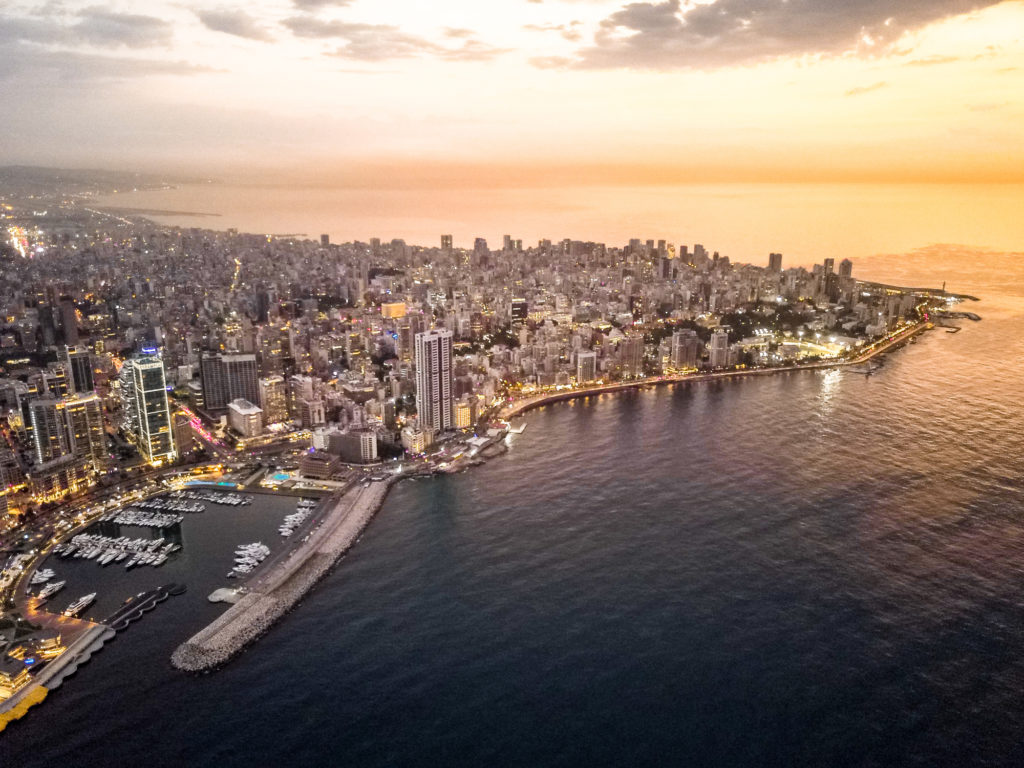- US Toll-Free:+1-888-671-5387
- International:+1-646-820-5387
- UK Toll-Free:+44-808-189-0324
- US Toll-Free:+1-888-671-5387
- International:+1-646-820-5387
- UK Toll-Free:+44-808-189-0324
- US Toll Free: +1-888-671-5387
- International: +1-646-820-5387
- UK Toll Free: +44-808-189-0324
No stranger to turmoil, Beirut has been destroyed and rebuilt 7 times throughout history, most recently during a civil war that lasted from 1975 to 1991. Though devastated by the war, and in sporadic upheaval since that time, the capital of Lebanon, once called "the Paris of the Middle East," has slowly restored itself to its former stature. An ambitious reconstruction program has led to the rebuilding and revitalization of many areas of the city that were damaged during the war.

Most prominent among these areas is the Beirut Central District, the commercial and historical center of the city. During the war, it experienced widespread violence and destruction, and was the site of one of the largest bank heists in history. Today, the BCD is characterized by sidewalk cafes, squares and public parks, museums, mosques, old Crusader churches, Roman ruins, and the Beirut Souks, a district of over 200 shops that has been in use since medieval times.
With its eclectic blend of cultures, balmy Mediterranean location and vibrant nightlife, this seaside metropolis is a must-see destination for the private-jet traveler.
Must see: Jeita Grotto is a spectacular limestone cave system located in the Nahr al-Kalb valley, a few miles north of the city. The caverns have played host to a variety of cultural events, and occasionally provide a venue for classical music concerts.
Lodging: Le Gray - This stylish hotel features a rooftop bar, restaurant, and swimming pool, with spectacular views of the city and Mediterranean Sea, Mount Lebanon and the city itself.
Cuisine: Lebanon's national dish is kibbeh, a small ball or patty consisting of ground lamb, bulgur, herbs and other ingredients that can be served either cooked or raw. Kibbeh is a key component of the mezze, an array of appetizers and small dishes that traditionally begins a meal. Arak, the national beverage, is an anise-flavored liquor similar to the Greek Ouzo.
Ground Transportation: Taxis are everywhere, but beware - the city is notorious for its traffic jams. Walking is a great way to see Beirut, and parts of the city center are pedestrian only.
Packing Tips: If your passport contains a visa stamp to Israel (or if customs officials suspect you've been there, such as if you're carrying items with Hebrew writing), you'll be denied entry to the country. However, many countries will issue you a duplicate passport if necessary; if you do travel to Israel prior to visiting Beirut, you can receive your visa stamp on a separate piece of paper.
Recommended Books: Elias Khoury's 2002 novel Yalo depicts the eponymous main character's growing up during Lebanon's civil war. The New York Times described the book as "a dizzying journey into the extremes of human experience."
Currency: The Lebanese pound is the local currency.
Calling Code Lebanon: 961
Best Travel Dates: Beirut experiences its best weather from April through June, when it tends to be mild and dry.


